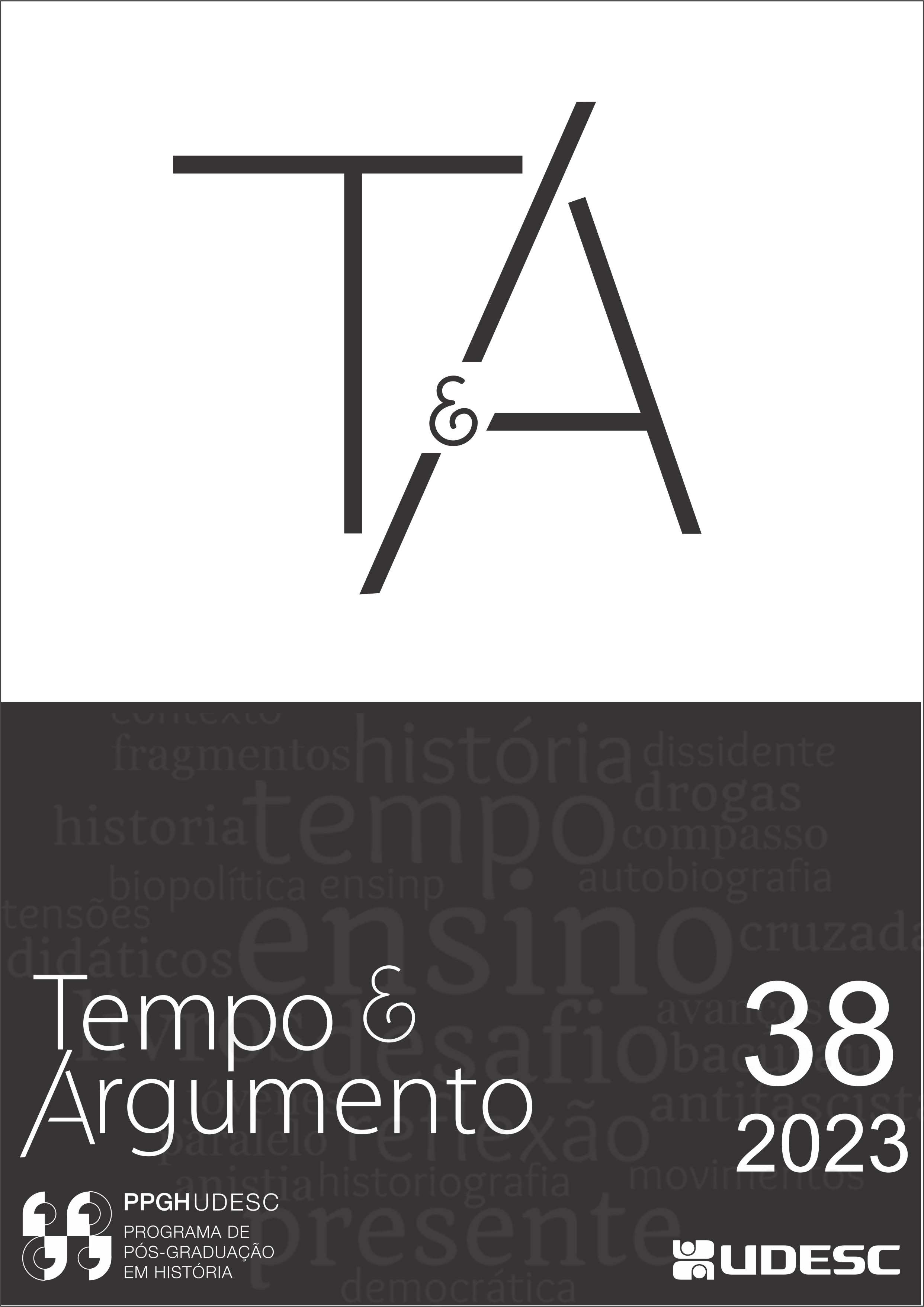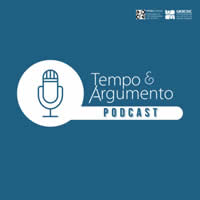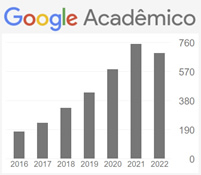Historical narratives of young people and recent history in Chile: dehistoriced, fragmented and polarized aproaches in the public school
DOI:
https://doi.org/10.5965/2175180315382023e0103Keywords:
recent history, memory, narrative patterns, young peopleAbstract
This article presents the results of a research on the configurations of memory in high school students in the city of Valparaíso. The conceptions of history, memory and historical narratives of political conflicts in the recent history of Chile (1965-2017) were approached through a case study methodology and focus groups in which students from five public schools finishing their secondary education participated. The discursive analysis of memory elaborations shows historical narrative patterns about the recent past shaped by dehistoricized, fragmented, polarized and romantic visions of history, strongly influenced by power, inequalities and popular memory. In the final part, we reflect on the incidence of these narrative configurations in the relationship with the past in the new generations and their effects on their political dispositions.
Downloads
References
ARAVENA, P. La destrucción de Valparaíso: escritos antipatrimonialistas. Valparaíso: Ediciones Inubicalistas, 2020. Disponível em: http://edicionesinubicalistas.cl/download/2109/ Acesso em: 21 sep. 2021.
ARTEAGA, B.; CAMARGO, S. Educación histórica: una propuesta para el desarrollo del pensamiento histórico en el plan de estudios de 2012 para la formación de maestros de Educación Básica. Tempo e Argumento, Florianópolis, v. 6, n. 13, p. 110-137, 1 set. 2014.
BARCA, I. Conciencia histórica: pasado y presente en la perspectiva de los jóvenes en Portugal. Clío & Asociados. La historia enseñada, [s. l.], v. 1, n. 17, p. 16-26, 2013. DOI: 10.14409/cya.v1i17.4170. Disponível em: https://bibliotecavirtual.unl.edu.ar/publicaciones/index.php/ClioyAsociados/article/view/4170. Acesso em: 4 nov. 2022.
BARTON, K. C. Investigación sobre las ideas de los estudiantes acerca de la historia. Enseñanza de las Ciencias Sociales, [Barcelona], n. 9, p. 97-114, 2010. Disponível em: https://raco.cat/index.php/EnsenanzaCS/article/view/191362. Acceso em: 21 mar. 2021
BERGMANN, K. A história na reflexão didática. Revista Brasileira de História, São Paulo, v. 9, n. 19, p. 29-42, 1990.
CANALES, M. Metodologías de investigación social: introducción a los oficios. Santiago: LOM Ediciones, 2006.
CARRETERO, M.; VAN ALPHEN, F. Do master narratives change among high school students? a characterization of how national history is represented. Cognition and Instruction, [s. l.], v. 32, n. 3, p. 290-312, 2014.
CERRI, L. F. Ensino de história e consciencia histórica: implicacoes didáticas de uma discussao contemporanea. 1. ed. Rio de Janeiro: Editora FGV, 2011.
CERRI, L. F. Os saberes escolares e o conceito de consciencia histórica. In: ZAMBONI, E.; GALZERANI, M. C.; PACIEVITCH, C. (eds.). Memória, sensibilidades e saberes. Campinas: Editora Alínea, 2015. p. 345-360.
CITRON, S. La historia y las tres memorias. In: PEREYRA, M. A. (ed.). La historia en el aula. Tenerife: Universidad de La Laguna, 1982. p. 113-124.
CUESTA FERNÁNDEZ, R. Clío en las aulas: la enseñanza de la Historia en España, entre reformas, ilusiones y rutinas. Madrid: Akal, 1998.
DE AMÉZOLA, G. Esquizohistoria: la historia que se enseña en la escuela, la que preocupa a los historiadores y una renovación posible de la historia escolar. Buenos Aires: Del Zorzal, 2008.
EPSTEIN, T. The relationship between narrative construction and identity in History Education: implications for teaching and learning. Educar em Revista, Curitiba, n. 60, p. 161-170, jun. 2016.
EPSTEIN, T.; PECK, C. L. Teaching and learning difficult histories in international contexts a critical sociocultural approach. New York: Taylor and Francis, 2017.
FLICK, U. Introducción a la investigacion cualitativa. Madrid: Morata, 2007.
GOMES BARCA OLIVEIRA, M. I. Narrativas históricas de los jóvenes: Una cara de su orientación temporal. Historia y Espacio, [s. l.], v. 15, n. 53, 2019. DOI: 10.25100/hye.v15i53.8741. Disponível em: https://historiayespacio.univalle.edu.co/index.php/historia_y_espacio/article/view/8741. Acesso em: 4 nov. 2022.
HALBWACHS, M. La memoria colectiva. 1. ed. Buenos Aires: Miño y Dávila, 2011.
HARTOG, F. Regímenes de historicidad: presentismo y experiencias del tiempo. México: Universidad Iberoamericana, 2007.
HERRERA, M. C.; PERTUZ BEDOYA, C. Educación y políticas de la memoria sobre la historia reciente de América Latina. Revista Colombiana de Educación, [s. l.], v. 1, n. 71, p. 79-108, 2 maio 2016.
JELIN, E. Los trabajos de la memoria: memorias de la represión. Madrid: Siglo XXI Editores, 2002.
JELIN, E. Las múltiples temporalidades del testimonio: el pasado vivido y sus legados presentes. Clepsidra. Revista Interdisciplinaria de Estudios sobre Memoria, Buenos Aires, v. 1, n. 1, p. 140-163, 2014.
LEE, P. History education and historical literacy. In: DAVIES, Ian (ed.). Debates in history teaching. New York: Routledge, 2011. p. 63-72.
MIGUEL-REVILLA, D.; SÁNCHEZ-AGUSTÍ, M. Conciencia histórica y memoria colectiva: marcos de análisis para la educación histórica. Revista de Estudios Sociales, [s. l.] , n. 65, p. 113-125, jul. 2018.
NUSSBAUM, M. Poetic justice: the literary imagination and public life. Boston: Beaccon Press, 1995.
PAUL, H. La llamada del pasado: claves de la teoría de la historia. Zaragoza: Institución Fernando el Católico, 2016.
PLÁ, S. La enseñanza de la historia como objeto de investigación. Secuencia, México , n. 84, p. 163-184, dic. 2012 . Disponible en: http://www.scielo.org.mx/scielo.php?script=sci_arttext&pid=S0186-03482012000300007&lng=es&nrm=iso. Acceso en: 04 nov. 2022.
RICOEUR, P. La memoria, la historia, el olvido. 2. ed. Buenos Aires: Fondo de Cultura Económica, 2010.
ROUSSO, H. La última catástrofe: la historia, el presente, lo contemporaneo. Santiago: Editorial Universitaria: Dirección de Bibliotecas, Archivos y Museos, 2018.
RUBIO, G.; OSORIO, J. Memoria, Procesos Identitarios y Pedagogías: El Caso Chileno. Rev. latinoam. educ. inclusiva, Santiago , v. 11, n. 1, p. 131-150, 2017 . Disponible en <http://www.scielo.cl/scielo.php?script=sci_arttext&pid=S0718-73782017000100009&lng=es&nrm=iso>. accedido en 04 nov. 2022. http://dx.doi.org/10.4067/S0718-73782017000100009.
RÜSEN, J. How to make sense of the past – salient issues of metahistory. The Journal for Transdisciplinary Research in Southern Africa, [s. l], v. 3, n. 1, p. 169 - 221, 11 abr. 2007.
RÜSEN, J. Was ist geschichtskultur?: Úberlegungen zu einer neuen Art, über Geschichte nachzudenken. In: FÜßMANN, K.; GRÜTTER, H. T.; RÜSEN, J. (eds.). Historische faszination Geschichtskultur heute. Köln: Böhlau, 1994. p. 3-26.
RÜSEN, J. Razão histórica: teoria da história: fundamentos da ciência histórica. Brasilia: Editora Universidade de Brasília, 2001.
RÜSEN, J. Historical consciousness: narrative structure, moral function, and ontogenetic development. In: Theorizing Historical Consciousness. Toronto: University of Toronto Press, 2004. p. 63-85.
RÜSEN, J. Didática da história: passado, presente e perspectivas a partir do caso alemão. Práxis Educativa (Brasil), Ponta Grossa, v. 1, n. 2, p. 7-16, 2006.
RÜSEN, J. Como dar sentido ao passado: questões relevantes de meta-história. História da Historiografia: International Journal of Theory and History of Historiography, [s. l.] v. 2, n. 2, p. 163-209, 29 maio 2009.
RÜSEN, J. Jörn Rüsen e o ensino de história. Curitiba: Editora UFPR, 2010.
SALAZAR, G. La historia desde abajo y desde dentro. Santiago: Facultad de Artes - Universidad de Chile, 2003.
SANT, E. et al. ¿Cómo podemos analizar la competencia narrativa del alumnado en el aprendizaje de la historia? Clío & Asociados. La historia enseñada, [s. l.], n. 18, p. 166 - 182, 2014.
SANTISTEBAN, A.; ANGUERA, C. Formación de la conciencia histórica y educación para el futuro. Clio & Asociados. La historia enseñada, [s. l], n. 18-19, p. 249-267, 2014.
SCHMIDT, M. A.; CAINELLI, M. A consciencia histórica como o lugar e o propósito da aprendizagem hirtórica: introducao a um diálogo com a teoría Jörn Rüsen. In: ZAMBONI, E.; GALZERANI, M.; PACIEVITCH, C. (eds.). Memória, sensibilidades e saberes. Campinas: Editora Alínea, 2015. p. 116-128.
SHEMILT, D. The Caliph’s coin: the currency of narrative frameworks in history teaching. In: STEARNS, P. N.; SEIXAS, P.; WINEBURG, S. (ed.). Knowing, teaching and learning history: national and international perspectives. New York New York University Press, 2000. p. 83-101.
STERN, S. J. De la memoria suelta a la memoria emblemática: hacia el recordar y el olvidar como proceso histórico. In: GARCÉS, M. et al. (eds.). Memorias para un nuevo siglo: Chile: miradas a la segunda mitad del siglo XX. Santiago: Lom, 2000. p. 11-33.
TAYLOR, S. J.; BOGDAN, R. Introducción a los métodos cualitativos de investigación. La búsqueda de significados. Barcelona: Paidós, 1987.
WERTSCH, J. V. Voices of the collective remembering. New York: Cambridge University Press, 2002.
WERTSCH, J. V. The narrative organization of collective memory. Ethos, [s. l.], v. 36, n. 1, p. 120-135, mar. 2008.
Published
How to Cite
Issue
Section
License
Copyright (c) 2023 Tempo e Argumento

This work is licensed under a Creative Commons Attribution-NonCommercial 4.0 International License.
The articles published by the magazine are for free use, destined for educational purposes and not commercial. The copyrights are all granted to the magazine. The articles whose authors are identified represent the expressed opinion of its authors and not the official position of the Tempo e Argumento magazine or of the Postgraduate Program in History of the Universidade do Estado de Santa Catarina.




